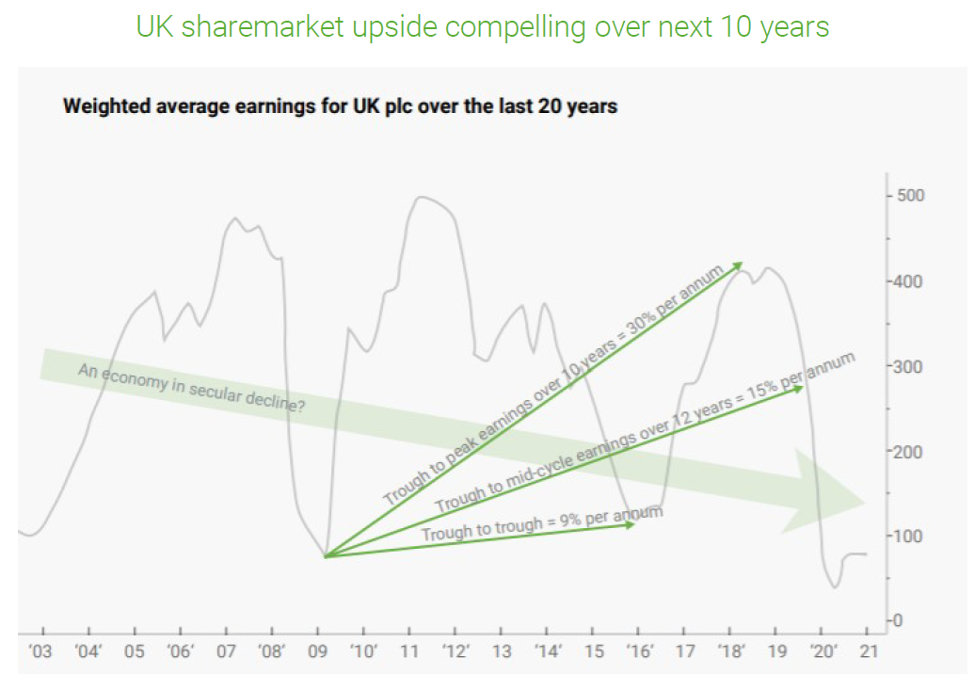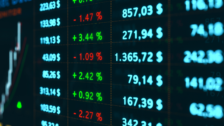Is it time to start investing in UK?
Over the past 20 years, UK corporate earnings growth has been up and down, but largely in an overall decline. This gloomy picture has stuck around. Fast-forward to today, and the storm is clearing. Following the pandemic, already beaten-down stocks are in much better shape than before, putting the UK on a path for a share market recovery.

The UK share market is looking more and more attractive as a resilient source of earnings growth than ever before, according to investment consultancy InvestSense. Overall, it has become a more diversified market, with a bias towards global exporters, so it will most likely continue to be sensitive to the global economy, and quite cyclical.
The expected return for UK equities is expected to do better than the rest of the world as British retail investors funnel their money back into the economy, boosted by growing confidence as the zone emerges out of the Covid-19 crisis.
The UK’s four countries increased GDP by 2.1% in March. Manufacturing, which was already hurting from Brexit, shrank by only 0.7% in the first quarter. The construction sector, which accounts for about 6% of economic activity, rose by 2.6% over the quarter. This strong recovery following the settlement of Britain’s divorce from the EU shows no sign of stopping.
InvestSense’s report says “The UK, and Australia for that matter, have less diverse economies and stock markets than many other countries. While ‘The Lucky Country’ has been on the right end of a China-sponsored resource and housing boom, the UK has historically been heavily invested in energy companies and banks.”
It may, however, spell bad news for UK energy companies, which have been labelled a dying breed, having underperformed over the last decade as the world starts to move to renewables. Some say their future is bleak, but there is a flipside argument, that they might be able to transition into ‘green’ hydrogen or ‘green’ energy.
The report argues that one day “we might be surprised at the resilience of oil prices, even with less money invested in production due to the slow transition to renewables.”
Even though UK’s Top 30 companies are not the highest flyers in the global economy, they are high-quality companies that yield on average over 4%, with earnings growth of over 10% projected over the next five years. With markets around the world in chaos, it’s a great time to focus on solid dividend-paying stocks. Dividends represent cash in hand. With the global average dividend yield being 3.23%, the UK’s stocks are paying well.
In summary, the UK equity market has come out of the pandemic still intact and trading at a discount to other major markets. UK inflation has slowed to 2%, and may rise as the economy rebounds. But it will be transitory. Economic data has been robust and has far exceeded expectations. That’s all thanks to the UK’s aggressive vaccine rollout, which has helped reopen the economy and give its people a sense of normality. During lockdown, people have been saving their pennies, unable to holiday or socialise. This restrained demand and extra savings could drive strong economic growth going forward. It is a big positive for cyclical stocks.
While the Delta variant is causing all types of headaches, it shouldn’t be a major problem for the UK. According to the BBC, “more than 47 million people have had a first vaccine dose – 87% of over-16s – and nearly 41 million (75% of over-16s) have had both doses.” These high vaccination levels have created a “protective wall”, or herd immunity, preventing the spread of the disease. For that reason, having exposure to UK equities will give investors a positive advantage in the market.










